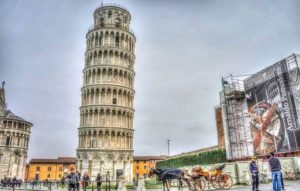Rapid growth in revenue of of Italian gambling market? Operators refute the fake news
Earlier, the Italian Customs and Monopoly Bureau released an updated plan to reopen the country’s retail business (including: gambling business). Italy not only ordered the implementation of lockdown policy, but also suspended all gambling retail business to stop Europe’s worst Covid-19 outbreak. According to this updated plan, from April 27, 2020, the government will allow the tobacco industry to resume the sale of certain lottery products; from May 4, it will allow lottery products that need to be verified by shop assistants; From May 11, stores offering sports gambling (including live sports and virtual sports gambling) will resume operations.

After a period of rest, it is questionable on how many retail operators in Italy can resume operations. According to a survey, only 38% of retail gambling operators stated that they had sufficient circulating funds to resume operations without any form of government assistance. The closure of the physical gambling base in Italy has dealt a heavy blow to some companies. Playtech operates the main B2C business in Italy through its Snai brand, accounting for 830 million euros in Playtech’s 2019 revenue of 900 million euros. Snai’s online revenue grew 21% last year, mainly from the contribution of the sports gambling business. But the Covid-19 pandemic has suspended Serie A and almost all major sports events.
Earlier, some major Italian operators had a digital discussion. They stated that, contrary to general perception, the growth of other games has not alleviated the tendency of players to stop gambling. Marco Castaldo, CEO of Microgame, said its online casino revenue fell by 10%, while bingo and poker grew by 50% and 70%, respectively. However, these gains cannot be transformed into an increase in real income, because the way players play is different from before, they spend more time but spend less money, and focus on getting the most entertainment value. Considering the scale of Italian physical slot machines, it is generally expected that there will be a large-scale shift to online, but this is not the case. More importantly, operators have observed that even though online slot machines become more active, players have reduced the amount of each bet.
At the beginning of April, Moreno Marasco, the chairman of Italy’s LOGiCO, pointed out that retail business accounted for 91% of the Italian gambling market. However, the reports of its members (including: gambling bosses such as Bet365, GVC Holdings, Kindred Group, The Stars Group, and William Hill) have not significantly increased on online activity after the retail industry closed. Moreno Marasco speculates that the reason why the online population did not increase may represent two things. First, Italian players are in financial trouble due to the epidemic; second, they may turn to bet on illegal international websites. If the reason is the latter, it may mean that Italy’s new restrictions on gamble advertising make unauthorized illegal platforms become the only online gambling operators on the Internet.





